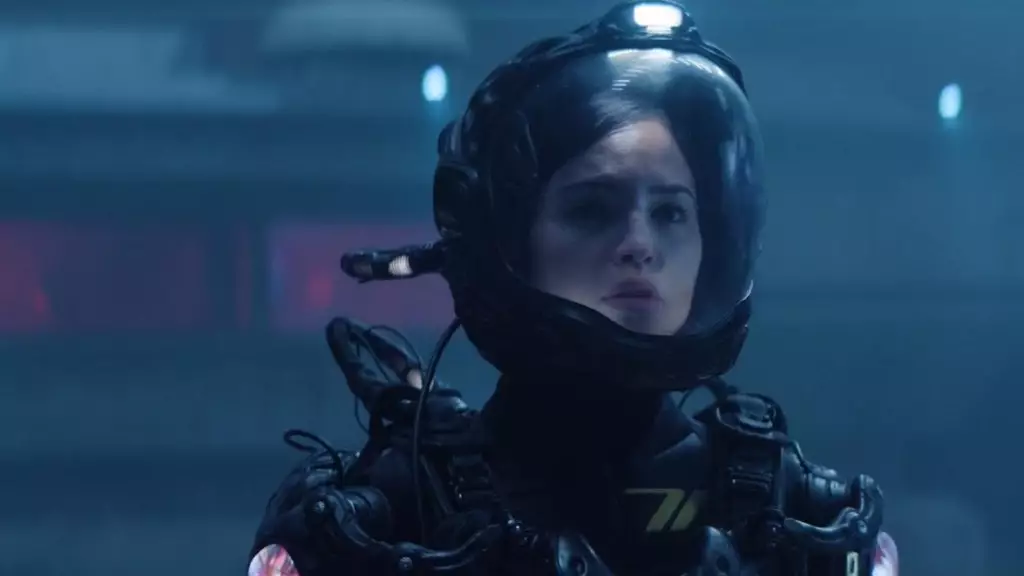In the shadowy realm of science fiction, few themes resonate as profoundly as the exploration of identity. “Ash,” directed by the enigmatic Flying Lotus, dives into this theme with unsettling ferocity. The protagonist, astronaut Riya (played with a palpable sense of confusion by Eiza González), awakens in a chilling new world devoid of her past. Her disorientation mirrors that of a society grappling with its own memory loss — an allegory that is deeply relevant in today’s political climate where misinformation reigns supreme. The amnesia that envelops Riya speaks to something more sinister: the erasure of crucial histories that shape both individual and collective identities.
A Cosmic But Relevant Horror
The film, set amidst the backdrop of the South by Southwest festival, adeptly draws on the tropes of cosmic horror while layering in themes that resonate with our Earth-bound issues. Riya’s struggle becomes a microcosm of humankind’s tendency to invade and exploit without understanding. The narrative questions the ethics of colonization—not just of planets, but of cultures and histories. As she grapples with the remnants of her past and the reality of her crew’s brutal fate, the chaotic urgency of her situation begs the question: what happens when we overlook the stories of those we risk displacing?
Prophetic Distress Signals
In a critical moment of the film, Riya receives a distress signal from an orbiting space station, igniting a chain reaction of horror as secrets unravel. This moment is both gripping and allegorical, potentially reflecting our need to listen to distress signals from marginalized voices in society. The film doesn’t shy away from depicting the ominous truths that lurk beneath its visually stunning surface. It openly critiques the power structures that allow certain narratives to flourish while silencing others, ultimately placing responsibility on viewers to recognize the fragility of truth in a world consumed by disinformation.
A Dance with the Past
Flashbacks serve as a crucial narrative device, weaving together threads of hope and nostalgia into Riya’s tumultuous journey. The line “Let’s not f*ck it up this time” resonates deeply. It underscores a desire to not repeat historical atrocities, as well as hinting at the cyclical nature of human behavior. Riya’s present chaos, juxtaposed with idealistic visages of her crew, represents an urgent call for self-awareness and reckoning with the past. Through these dreamlike sequences, viewers are confronted with the stark dichotomy between aspiration and the grim realities of existence.
Intergalactic Visions and Cultural Commentary
While “Ash” pays homage to genre classics like “Alien” and “The Thing,” Flying Lotus does more than just recapture the essence of cosmic horror. His visual storytelling creates an immersive experience filled with technicolor imagery that both mesmerizes and disorients. The use of AI-generated effects, though contentious, feels intentional—mirroring the grotesque beauty of an uncharted universe and highlighting the blurred line between reality and hallucination. It’s a stylistic choice that complements the film’s central themes of chaos, identity, and the implications of our choices on an interconnected world.
Ultimately, “Ash” isn’t just a cinematic escape; it’s a haunting reminder of the complexities we navigate in our realities. By intertwining horror, science fiction, and socio-political commentary, it compels us to critically examine the narratives we embrace and resist complacency in the face of an uncertain future.



Leave a Reply